“A common sense interpretation of the facts suggests that a super-intellect has monkeyed with physics, as well as with chemistry and biology, and that there are no blind forces worth speaking about in nature. The numbers one calculates from the facts seem to me so overwhelming as to put this conclusion almost beyond question.”—Cosmologist Sir Fred Hoyle[1]
…by Jonas E. Alexis
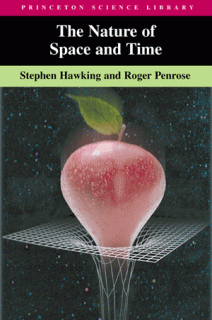 The scientific community experienced one of its most important paradigm shifts in the twentieth century when scientists discovered evidence that the universe was not eternal, but had a beginning. As Stephen Hawking and Roger Penrose state,
The scientific community experienced one of its most important paradigm shifts in the twentieth century when scientists discovered evidence that the universe was not eternal, but had a beginning. As Stephen Hawking and Roger Penrose state,
“almost everyone now believes that the universe, and time itself, had a beginning at the big bang.”[2]
Many scientists were bewildered by that discovery because it clearly pointed toward a conclusion they had been trying to avoid. Not only did it compel them to reconsider their theories, but it also implied that a greater intelligent force must exist.
After all, everything that begins to exist has a cause; the universe began to exist, therefore the universe has a cause.
While physicist and cosmologist Paul Davies agrees that the scientific data suggest that the universe had a beginning, he rejects the conclusion of a Creator because, in his own words, “I never liked the idea of divine tinkering.”[3]
When all is said and done, the scientific evidence does not offer us many choices when it comes to the beginning of the universe. Despite the fact that theists have been saying for thousands of years that the universe had a beginning, some atheist scientists have just figured that out in the twentieth century. The only difference is that the theist posits a Creator as the cause, whereas the atheist tries to come up with something else.
Since the eternal universe hypothesis has now been rejected by the scientific community, we are left with two possible and frightening explanations: either the universe created itself, which is a contradiction in terms, or someone else did the job.
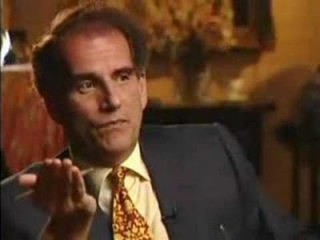
The universe as we know it is a privileged one, containing all the elements required for life—alter or remove a single element and death on a massive scale will ensue.[4] This is a fact most physicists agree upon,[5] however reluctantly, and is what mathematician and philosopher David Berlinski calls a “put-up job.”[6]
If the universe created itself, that means that the universe had to be in existence before it created itself! This is not only self-contradictory but completely incompatible with all the known laws of science and human experience.
Unfortunately, many brilliant minds have fallen into the trap of what I call intellectual perversity. Daniel Dennett declares in his book Breaking the Spell: Religion as a Natural Phenomenon (a book that is considered an apologetic for atheism) that the universe “creates itself ex nihilo,” and that, he believes, is “the ultimate bootstrapping trick.”[7]
Quite frankly, it is a bootstrapping trick, and Dennett gets stuck on that trick because he wants the origin of this “self-creation” to be “non-miraculous.” Perhaps Berlinski was quite right when he joked a few years ago:
“We lose something in the literary or intellectual culture that’s no longer accessible. You get a guy like Daniel Dennett, whose greatest intellectual achievement was growing that stupid beard of his, masquerading as a scientific expert on Darwinian theory, staring at the camera, and no one is dousing him with a bucket of water. It’s incredible to me. Richard Dawkins is accepted as the great intellect…it should be sad.”[8]
In a heated email correspondence between Michael Ruse and Dennett, Ruse wrote of Dennett and Richard Dawkins,
“I think you and Richard are absolute disasters in the fight against intelligent design…What we need is not knee-jerk atheism but serious grappling with the issues. Neither of you are willing to study Christianity seriously and to engage with the ideas…It is just plain silly and grotesquely immoral to claim that Christianity is simply a force for evil, as Richard claims…
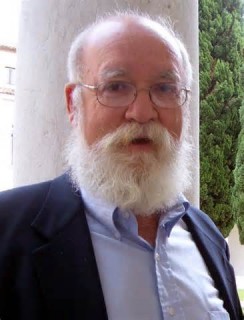
“Now, for the record. I am a hard-line Darwinian and always have been very publicly when it did cost me status and respect. in fact, I am more hard-line than you are, because I don’t buy into this meme [expletive]… ”[9]
Ruse, who is no friend of intelligent design or creationism and who is a “fanatical Darwinian,”[10] again declares that “evolutionism…functions like a secular religion,” although he maintains that “Darwinian evolutionary theory is anything but a genuine theory…”[11]
Ruse writes that Dawkins’ “The God Delusion made me ashamed to be an atheist and I mean it.”[12] Lastly, Rule actually compares Dawkins’ argument with a first-year undergraduate student and, on that note, says, “There are a lot of very bright and well informed Christian theologians. We atheists should demand no less.”[13]
Terry Eagleton, one of England’s most influential literary critics, came to similar conclusions. He wrote,
“Imagine someone holding forth on biology whose only knowledge of the subject is the Book of British Birds, and you have a rough idea of what it feels like to read Richard Dawkins on theology…As far as theology goes, Dawkins has an enormous amount in common with Ian Paisley and American TV evangelists. Both parties agree pretty much on what religion is; it’s just that Dawkins rejects it while Oral Roberts and his unctuous tribe grow fat on it”[14]
A Self-Creating Universe?
Dawkins agrees with Dennett’s idea of the universe creating itself. In answer to the question “How do you believe life itself began?,” he responded, “The origin of life has got to be something self-replicating. We don’t know what it was, but whatever it was, it was self-replicating.”
When the interviewer asked him to define what he meant by self-replicating, Dawkins said, “It has to grow and then split, so that it reproduces daughter units like itself.”[15]
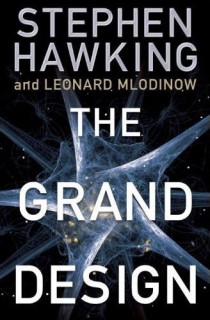 Stephen Hawking, in his recent book The Grand Design, ascribes to that hypothesis, saying, “Because there is a law of gravity, the universe can and will create itself out of nothing.”[16]
Stephen Hawking, in his recent book The Grand Design, ascribes to that hypothesis, saying, “Because there is a law of gravity, the universe can and will create itself out of nothing.”[16]
Peter Adkins of Oxford likewise gives allegiance to this principle, calling it the “Cosmic Bootstrap.” For Adkins, “space-time generates its own dust in the process of its own self-assembly.”[17]
These ideas are spurious when taken to their logical conclusions. As Oxford mathematician and philosopher of science John C. Lennox notes in his critique of Hawking’s view,
“If we say that ‘X creates Y,’ we presuppose the existence of X in the first place in order to bring Y into existence. That is a simple matter of understanding what the words ‘X creates Y’ mean. If, therefore, we say ‘X creates X,’ we imply that we are presupposing the existence of X in order to account for the existence of X. This is obviously self-contradictory and thus logically incoherent—even if we put X equal to the universe! To presuppose the existence of the universe to account for its own existence sounds like something out of Alice in Wonderland, not science.”[18]
Yet Dennett believes that even reason can be explained that way. Dennett dogmatizes,
“In the beginning, there were no reasons; there were only causes. Nothing had a purpose, nothing had so much as a function; there was no teleology in the world at all. The explanation for this is simple: there was nothing that had interests. But after millennia there happened to emerge simple replicators.”[19]
At its core, this is nothing more than a circular argument. Adding massive amounts of time does not change the fact that nothing can begin without a cause. If there was no purpose or reason in the beginning, where did these “simple replicators” originate from?
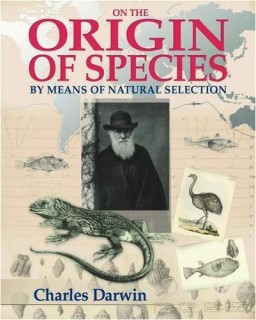 Natural selection cannot be the answer here, for it can only function using information already present in a system. A donkey, for example, has in its gene pool the information for four legs, a tail, and so on, but it does not possess the information to produce a wing or a beak.
Natural selection cannot be the answer here, for it can only function using information already present in a system. A donkey, for example, has in its gene pool the information for four legs, a tail, and so on, but it does not possess the information to produce a wing or a beak.
Charles Darwin assumed that the required information was already present in the system and had evolution continue on from there (quite frankly, he was never able to give a succinct explanation of the origin of species in his ambitious Origin of Species).
Daniel Dennett, however, attributes to Darwinism what Darwin had assumed already existed:
“self-replicating macros, preceded or accompanied perhaps by self-replicating clay crystals, gradually advancing from tournaments of luck to tournaments of skill over a billion years. And the regularities of physics on which those cranes depend could themselves be the outcome of a blind, uncaring shuffle through Chaos. Thus, out of next to nothing, the world we know and love created itself.”[20]
This argument is important because it demonstrates how far Dennett is willing to bend reason and logic in order to justify his preexisting beliefs.
Dennett’s idea that the universe created itself, without reason or cause, is not only irrational but suggests that Dennett is willing to give up whatever intellectual credibility he has to make his dreams come true.
And it was Dennett who complained that “I wonder if any believers in the End Times will have the intellectual honesty and courage to read this book [Breaking the Spell] through”![21]
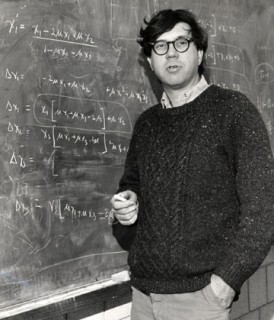
For Dennett, the issue of a miraculous origin of the universe is out of the question, so he is forced to postulate something that is even more miraculous: that the universe created itself. This kind of desperate leap of faith is needed when one tries to escape from the more rational conclusion that the universe indicates that some “super-intellect has monkeyed with physics,” to use Sir Fred Hoyle’s words.
Yet Dennett’s particular view is shared by many, including Thomas Nagel of New York University,[22] Richard Lewontin of Harvard, L. T. More of the University of Cincinnati, physicist Paul Davies, Nobel laureate George Wald, and scientist/author Isaac Asimov.
In recent years, Stephen Hawking and Leonard Mlodinow have fallen into a similar trap by promoting the multiverse theory in order to escape the ultimate conclusion that the universe was created by a supernatural being.
Hawking and Mlodinow declare that the new theory, also called M-theory, “predicts that a great many universes were created out of nothing. Their creation does not require the intervention of some supernatural being or god.”[23]
But where did these multiverses come from? Hawking and Mlodinow tell us that they “arise naturally from physical law. They are a prediction of science.”[24]
Both scientists, though brilliant in their own fields, cannot see that this simply replaces one circular argument with another. If adding billions of years is not enough to solve the origin of the universe, then adding an unlimited number of parallel universes also will not answer the question of how our universe was created.
These arguments are merely smokescreens to deflect attention away from the inherent deficiencies of the belief system. It is one thing for Hawking and Mlodinow to confidently posit these assertions as axiomatic, but it is quite another to provide scientific foundations for them.
If multiple universes arise naturally from the physical law, where did the physical law come from in the first place? If multiple universes are a prediction of science, then science must be able to give us at least some scientific explanation for this.
Again John Lennox addresses the underlying flaws of this theory:
“Physical laws cannot create anything. They are a description of what normally happens under certain given conditions…The sun rises in the east every day, but this law does not create the sun; nor the planet earth, with east and west. The law is descriptive and predictive, but it is not creative. Similarly Newton’s law of gravitation does not create gravity or the matter on which gravity acts.”[25]
Because there is no scientific or rational backbone supporting Hawking’s multiverse theory, fellow intellectuals such as Paul Davies and Richard Swinburne completely reject it. Swinburne states,
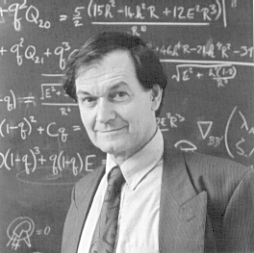
“It’s crazy to postulate a trillion (causally unconnected) universes to explain the features of one universe, when postulating one entity (God) will do the job.”[26]
Physicist and staunch atheist Steven Weinberg lamented that multiple universes “are very speculative…without any experimental support”[27] and physicist Lee Smolin called it “a fantasy,”[28] even though he promoted it in his book.
Roger Penrose, who is far from thrilled with Hawking’s new book, declares in his response to The Grand Design that “M-theory enjoys no observational support whatsoever.”[29]
Atheist physicist Peter Woit of Columbia University was also disappointed at The Grand Design’s heavy reliance on M-theory, which he sees as sheer speculation. He declares,
“I’m in favor of naturalism and leaving God out of physics as much as the next person, but if you’re the sort who wants to go to battle in the science/religion wars, why you would choose to take up such a dubious weapon as M-theory mystifies me.”[30]
Because Hawking and Mlodinow jumped on the multiverse idea without first pulling together scientific backing, John Horgan of Scientific American denounces Hawking’s “‘new’ theory” as “the same old crap.”[31]
The lack of scientific evidence for M-theory has also been dismissed by physicists such as Frank Close, Jon Butterworth, and Jim Al-Khalili.[32]
Even if we grant Hawking the premise that M-theory is correct and scientific for the sake of argument, it would still not be legitimate to conclude that there is no “super-intellect” behind it. This was pointed out by Don Page, a theoretical physicist at the University of Alberta, Canada, and a former student of Hawking’s, with whom he co-wrote many papers.
Page declares, “I certainly would agree that even if M-theory were a fully-formulated theory (which it isn’t yet) and were correct (which of course we don’t know), that would not imply that God did not create the universe.”[33]

Although atheist physicist Victor J. Stenger admits that Hawking and Mlodinow have not said anything new at all, he rejoices that “thanks to Hawking’s notoriety, at least more people will now have heard that science has plausible answers to how the universe came about naturally without the need for a creator.”[34]
The only people thrilled with The Grand Design rest largely in the New Atheists camp. Richard Dawkins, for example, rejoiced at what he saw as a victory for Darwinian evolution.
“Darwinism kicked God out of biology but physics remained more uncertain. Hawking is now administering the coup de grace.”[35]
Similarly, although Hawking and Mlodinow declare in the first page of their book that “philosophy is dead” and that it “has not kept up with modern developments in science, particularly physics,”[36] they later get involved in highly philosophical theories that have not been confirmed by science.
Speculation about multiple universes aside, there are basic yet profound questions—such as why human beings matter, why there is a universe after all, and why the laws of the universe seem to correspond to the rational human mind—that science cannot explain.
Nobelist Sir Peter Medawar called this the limit of science.[37] Michael Polanyi, the Jewish polymath who converted to Christianity, also implies that there is a limit to the sciences.[38] As mathematician and astronomer John D. Barrow argues, science can only make sense if it operates within certain parameters, for if it is unlimited and unbound, it may lead to contradictions.[39]
Science also cannot explain basic mathematical truths and principles—axioms that all mathematicians take for granted. Even Euclid made it clear in his Elements that postulates in mathematics are “unproved but accepted premises.”[40]
Mathematics cannot function without these unproved but accepted premises, and Elements itself has to begin with accepted premises in order to go forward. Every student of geometry knows that a line by definition must contain at least two distinct points. But this is an assumption that has to be accepted as true in order to make any progress in geometry.
Despite this principle, Peter Adkins of Oxford wrote,
“There is no reason to suppose that science cannot deal with every aspect of existence. Only the religious—among whom I include not only the prejudiced but the underinformed—hope there is a dark corner of the physical universe, or of the universe of experience, that science can never hope to illuminate.”[41]
Yet fellow atheist Bruce Sheiman declares, “The more I understand the world as revealed by science, the more I find the materialist and reductionist explanation for our human destiny terribly devoid of depth, value, and meaning.”[42]
Adkins, like many of his fellow atheists, has not been paying attention at all, for even physicist and Nobel Prize winner Richard Feynman made it clear that “every attempt to reduce ethics to scientific formulae must fail…The sciences do not directly teach good or bad…Ethical values lie outside the scientific realm.”[43]
And Feynman certainly was not among the religious.
Does the Brain Think?
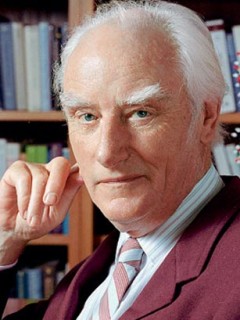
Willfully ignorant of the shaky footing their suppositions rest on, Hawking and Mlodinow then apply their views to the human brain.
“Recent experiments in neuroscience support the view that it is our physical brain, following the known laws of science, that determines our actions and not some agency that exists outside those laws.”[44] Then Hawking and Mlodinow take the next illogical step, concluding that “free will is just an illusion.”[45]
There is nothing new here at all. This idea has been advanced by people from Daniel Dennett to Francis Crick. Crick declares in his book The Astonishing Hypothesis: The Scientific Search for the Soul:
“The Astonishing Hypothesis is that ‘You,’ your joys and your sorrows, your memories and your ambitions, your sense of personal identity and free will, are in fact no more than the behavior of a vast assembly of nerve cells and their associated molecules.”[46]
But this position suffers badly when it is taken to its inevitable conclusion. If the brain determines our actions, it logically follows that we are prisoners of our brains. Be it for good or evil, we have no choice but to follow the commands of our brains, since we are “no more than biological machines.”[47]
Albert Einstein, being a determinist, accepted the idea that we have no responsibility when it comes to our own actions, even though he saw the logical repercussions of it and was frightened by them:
“I know that philosophically a murderer is not responsible for his crime, but I prefer not to take tea with him.”[48]
However, if Stalin, Mao and others are not philosophically responsible for their actions, then how can they be held accountable? The interesting part is that this deterministic/materialistic view is also embraced by Richard Dawkins, Steven Pinker, and nearly all the other New Atheists.
In actuality, the so-called New atheists leave themselves no other choice. For example, Stephen Hawking is a flaming determinist, so it is no accident that in The Grand Design we constantly read phrases like “given the state of the universe at one time, a complete set of laws fully determines both the future and the past” (using Pierre Laplace’s argument) and this “scientific determinism must hold for people as well.”[49]
Not only that, the authors state that “biological processes are governed by the laws of physics and chemistry and therefore are as determined as the orbits of the planets.”[50]
One needn’t be a genius to see that this is nonsense. If the unfeeling laws of nature determine how a system will evolve over time, what reason do we as conscious human beings have to trust that system? The laws of nature do not have minds or emotions. And a thing by itself cannot be “determined”—i.e., passively acted upon—without necessitating an external determiner.
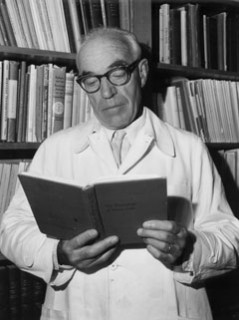
Hawking and Mlodinow are very vague about how they arrived at the idea that because biological processes are governed by the laws of physics and chemistry, they are therefore “determined.” This is why philosopher of science Ervin Laszlo makes the point that when people like Hawking begin to talk about God and religion, we should not mistake them for scientists.[51]
In order to make their case, Hawking and Mlodinow have to give the impression that their presuppositions are scientific, when in fact they can provide no scientific foundation for their flimsy and—quite frankly, intellectually embarrassing—claims. There is no convincing evidence from neuroscience saying that our physical brains determine our actions.[52]
In fact, there is a great deal of reliable evidence to the contrary. The brain is simply a machine that the real person inside uses. This is one reason Nobel Prize winner Sir John Eccles declared that there is a “ghost”—the real person—that tells the brain what to do.[53]
Yet the New Atheists seem determined to base whole premises on the idea that understanding the physical brain will help neuroscientists understand the real person.
“The more we understand ourselves at the level of the brain,” Sam Harris writes, “the more we will see that there are right and wrong answers to questions of human values.”[54]
Hawking and Mlodinow agree wholeheartedly. “Recent experiments in neuroscience support the view that it is our physical brain, following the known laws of science, that determines our actions, and not some agency that exists outside those laws.”[55]
This makes no practical sense whatsoever. If their suppositions are true, we might as well empty our jails and close down our courts, since anyone accused of a crime was simply taking orders from his or her brain. They can’t be held responsible for the chaotic, meaningless commands issued by their brains.
Yet every day thousands of people are convicted and held responsible for their choices.
Another application is emotional love. If Hawking and Mlodinow are correct, then telling someone “I love you” has no meaning. It was merely prompted by chemical impulses in the brain, probably to further a biological imperative. (I hope Crick’s and Hawking’s wives do not know about their presuppositions.)
Unfortunately, this line of reasoning culminates in absurd real-life applications. If we are merely puppets of our brains, then personhood, free will, the purpose of life, and humanity itself become meaningless concepts.
We see a similar pattern in Sam Harris’s books, which are fraught with internal contractions.
During the course of The Moral Landscape, Harris uses brain and mind interchangeably, revealing his rejection of anything beyond the materialistic.[56] However, he also refers to human beings as “conscious creatures” and consciousness as “the basis of human values,”[57] concepts which his colleague Daniel Dennett completely denies.
Dennett himself unapologetically asserts that human beings “are made of mindless robots and nothing else, no non-physical, non-robotic ingredients at all.”[58]
Robots, by definition, do not have consciences and do not act as free agents. External entities always tell them what to do and they act on those orders. Again jumping off his premise that we are all robotic machines rather than free agents, Dennett argues that consciousness itself is an illusion.[59]
Francis Crick and others believed likewise. Steven Pinker, who along with Dennet previewed Harris’s manuscript for The Moral Landscape,[60] also does not believe in a conscious, human-controlled mind. He states that the mind is simply “the physiological activity of the brain” and that this process goes back to the genes, which previously had been shaped by “evolutionary processes.”[61]
But even he understands that this is merely a hypothesis. He admits that “virtually nothing is known about the functioning micro-circuitry of the human brain, because there is a shortage of volunteers willing to give up their brains to science before they are dead.”[62]
Lost in his assertions, Sam Harris somehow fails to provide an evidentiary explanation as to why human beings are “conscious creatures.” Harris simply assumes it and offers nothing more.
In a nutshell, the New Atheists have adopted such ideas about the brain not because there is verifiable science behind them, but because, as Richard Lewontin of Harvard said some years ago, “materialism is an absolute, for we cannot allow a Divine Foot in the door.”[63]
In other words, these atheists don’t care whether an idea is true or false, whether a hypothesis is scientifically accurate or incorrect, but merely whether it denies a “super-intellect” a place in the universe. Listen to Lewontin’s full quote:
“We take the side of science [Darwinian evolution] in spite of the patent absurdity of some of its constructs, in spite of its failure to fulfill many of its extravagant promises of health and life, in spite of the tolerance of the scientific community for unsubstantiated just-so stories, because we have a prior commitment, of science somehow compel us to accept a material explanation of the phenomenal world, but, on the contrary, that we are forced by our a priori adherence to material causes to create an apparatus of investigation and a set of concepts that produce material explanations, no matter how counterintuitive, no matter how mystifying to the uninitiated. Moreover, that materialism is an absolute, for we cannot allow a Divine Foot in the door.”[64]
This underlying absolute must be taken seriously, for it forms the foundation for many atheists’ books over the years.

Daniel Dennett postulated in 1995 that the Christian God who created the universe is “like Santa Claus, a myth of childhood,” leaving room for none but the deluded to believe in Him after reaching adulthood.[65] (Richard Dawkins said something very similar in 2003 on a BBC radio broadcast.[66])
Yet if this were true—if God belongs in the class of imaginary beings like Santa or the Tooth Fairy—then why is it that no adults believe in Santa but many consistently believe in God throughout their entire lives?[67]
Formerly an atheist, Alister McGrath didn’t come to believe in God until he went to Oxford and began to rethink things he had taken for granted. He soon discovered that neither the intellectual foundation nor the existential description for atheism could stand up to reality.[68]
Antony Flew, one of the most trenchant and articulate atheists in the twentieth century, renounced his atheistic beliefs late in life.[69] Lee Strobel was a staunch atheist throughout his time at Yale, until he began to reexamine the claims of Christianity.
Francis Collins, former head of the Genome Project, did not become a Christian until he started practicing medicine.[70] Cosmologist Frank Tipler started his career as “a convinced atheist,” but changed his views when he seriously studied Christianity.[71]
And the list of individuals throughout history who believed in God is long. Let’s just name a few here:
Antiseptic Surgery, Joseph Lister (1827-1912)
Bacteriology Louis, Pasteur (1822-1895)
Calculus, Isaac Newton (1642-1727)
Celestial Mechanics, Johann Kepler (1571-1630)
Chemistry, Robert Boyle (1627-1691)
Comparative Anatomy, Georges Cuvier (1769-1832)
Computer Science, Charles Babbage (1792-1871)
Dimensional Analysis, Lord Rayleigh (1842-1919)
Electrodynamics, James Clerk Maxwell (1831-1879)
Electromagnetics, Michael Faraday (1791-1867)
Electronics, Ambrose Fleming (1849-1945)
Entomology of Living Insects, Henri Fabre (1823-1915)
Field Theory, Michael Faraday (1791-1867)
Fluid Mechanics, George Stokes (1819-1903)
Galactic Astronomy, William Herschel (1738-1822)
Gas Dynamics, Robert Boyle (1627-1691)
Genetics, Gregor Mendel (1822-1884)
Glacial Geology, Louis Agassiz (1807-1873)
Gynecology, James Simpson (1811-1870)
Hydraulics, Leonardo de Vinci (1452-1519)
Hydrography, Mattew Maury (1806-1873)
Hydrostatics, Blaise Pascal (1623-1662)
Ichthyology, Louis Agassiz (1807-1873)
Isotopic Chemistry, William Ramsay (1851-1916)
Model Analysis, Lord Rayleigh (1842-1919)
Natural History, John Ray (1627-1705)
Non-Euclidean, Geometry Bernhard Riemann (1826-1866)
Oceanography, Matthew Maury (1806-1873)
Optical Mineralogy, David Brewster (1781-1868)
Paleontology, John Woodward (1665-1728)
Pathology, Rudolph Virchow (1821-1902)
Physical Astronomy, Johann Kepler (1571-1630)
Reversible Thermodynamics, James Joule (1818-1889)
Statistical Thermodynamics, James Clerk Maxwell (1831-1879)
Stratigraphy, Nicholas Steno (1631-1868)
Systematic Biology, Carolus Linnaeus (1707-1778)
Thermodynamics, Lord Kelvin (1824-1907)
Thermokinetics, Humphrey Davy (1778-1829)
Vertebrate Paleontology, Georges Cuvier (1769-1832)
Absolute Temperature, Scale Lord Kelvin (1824-1907)
Actuarial Tables, Charles Babbage (1792-1871)
Barometer, Blaise Pascal (1623-1662)
Biogenesis, Law Louis Pasteur (1822-1895)
Calculating Machine, Charles Babbage (1792-1871)
Chloroform, James Simpson (1811-1870)
Classification System, Carolus Linnaeus (1707-1778)
Double Stars, William Herschel (1738-1822)
Electric Generator, Michael Faraday (1791-1867)
Electric Motor, Joseph Henry (1797-1878)
Ephemeris Tables, Johann Kepler (1571-1630)
Galvanometer, Joseph Henry (1797-1878)
Global Star Catalog, John Herschel (1792-1871)
Kaleidoscope David Brewster (1781-1868)
Pasteurization, Louis Pasteur (1822-1895)
Reflecting Telescope, Isaac Newton (1642-1727)
Self-Induction, Joseph Henry (1797-1878)
Telegraph, Samuel F. B. Morse (1791-1872)
Thermionic Valve, Ambrose Fleming (1849-1945)
Mathematical Analysis, Leonhard Euler (1707-1883)
Number Theory, Johann Carl Friedrich Gauss (1777-1855)
Botanist and Inventor, George Washington Carver (1864-1943)
Mathematician and Astronomer, Benjamin Banneker (1731-1806)
And who can talk about the world of literature and classical music without William Shakespeare, Charles Dickens, Leo Tolstoy, Fyodor Dostoyevsky, Alexander Solzhenitsyn, Johann Sebastian Bach, George Frideric Handel, Franz Joseph Haydn, Franz Liszt, among others?
Are all these people deluded? And if so, what is so powerful about Christianity
that it can deceive so many brilliant people throughout the centuries? As Francis Collins pointed out,
“If faith was a psychological crutch, it must be a powerful one.”[72]
This psychological crutch has also kept noted figures such as John Polkinghorne into intellectual bondage for far too long.[73] Polkinghorne, who played an instrumental role in the discovery of quark and other theoretical particles, did not become an idiot by accepting Christianity.[74]
It seems then that it is too simplistic to equate the idea of God with childhood myths. But this concept continues to find favor with modern atheists, and can be traced back to the writings of Sigmund Freud—The Future of an Illusion—and Ludwig Feuerbach—The Essence of Christianity. We will look at the premises and the illogical leaps of these two books in a future article.
Though Hawking and Mlodinow do not regurgitate Freud and Feuerbach in their book, they do seem to follow Lewontin’s premise, declaring confidently that “it is possible to answer” the question of the origin of the universe “purely within the realm of science, and without invoking any divine beings.”[75]
With divine intervention thrown out, the authors state that “Mtheory is the only candidate for a complete theory of the universe,” and they hope this theory will eventually “be a model of a universe that creates itself. We must be part of this universe, because there is no other consistent model.”[76]
Once again, Hawking and Mlodinow are great scientists, but “when ideology is your guide, you’re bound to get lost.”[77]
[1] Fred Hoyle, “The Universe: Past and Present Reflections,” Engineering and Science, November 1981.
[2]Stephen Hawking and Roger Penrose, The Nature of Space and Time (Princeton: Princeton University Press, 1996), 20.
[5] See Paul Davies, The Goldilocks Enigma: Why Is the Universe Just Right for Life? (New York: Mariner Books, 2008); John D. Barrow and Frank Tipler, The Anthropic Cosmological Principle (New York: Oxford University Press, 2008); Martin Rees, Just Six Numbers: The Deep Forces that Shape the Universe (New York: Basic Books, 2000); Guillermo Gonzalez and Jay Richards,
The Privileged Planet: How Our Place in the Cosmos Is Designed for Discovery (WA: Regnery Publishing, 2004); Michael J. Denton, Nature’s Destiny: How the Laws of Biology Reveal Purpose in the Universe (New York: The Free Press, 1998).
[6]See David Berlinski, The Devil’s Delusion: Atheism and Its Scientific Pretension (New York: Basic Books, 2009), chapter 6.
[7]Daniel Dennett, Breaking the Spell: Religion as a Natural Phenomenon (New York: Penguin, 2006), 244
[9] http://www.uncommondescent.com/intelligent-design/the-ruse-dennett-briefwechsel-the-clash-between-evolution-and-evolutionism/
[10] Michael Ruse, “Why Richard Dawkins’ Humanists Remind Me of a Religion,” Guardian, October 2, 2012.
[11] http://www.uncommondescent.com/intelligent-design/the-ruse-dennett-briefwechsel-the-clash-between-evolution-and-evolutionism/
[14]Terry Eagleton, “Lunging, Flailing, Mispunching,” London Review of Books, October 19, 2006, vol. 28, No. 20: 32-34.
[20]Daniel Dennett, Darwin’s Dangerous Idea: Evolution and the Meaning of Life (New York: Touchtone, 1995), 185.
[22] Thomas Nagel seems to have changed many of his views recently. Thomas Nagel, Mind and Cosmos: Why the Materialist Neo-Darwinian Conception of Nature Is Almost Certainly False (New York: Oxford University Press, 2012).
[30] Peter Woit, “Hawking Gives Up” (blog post at http://www.math.columbia.edu/~woit/wordpress/?p=3141).
[31] John Horgan, “Cosmic Clowning: Stephen Hawking’s ‘new’ Theory of Everything is the Same Old CRAP,” Scientific American, September 13, 2010.
[34]“Another Ungodly Squabble,” Economist, September 5, 2010; Victor Victor J. Stenger and William Lane Craig have debated the question of origin on at least two occasions. One of the debates can be viewed on Youtube: https://www.youtube.com/watch?v=EjOs62PJciI.
[38]See Michael Polanyi, Science, Faith and Society (Chicago: The University of Chicago Press, 1946).
[39]See Barrow, Impossibility: The Limits of Science and the Science of Limits (New York: Oxford University Press, 1998), chapter nine.
[46] Francis Crick, The Astonishing Hypothesis: The Scientific Search for the Soul (New York: Simon & Schuster, 1994), 3.
[51] Ervin Laszlo, “When Stephen Hawking Speaks About God, Don’t Mistake Him for a Scientist,” Huffington Post, September 22, 2010.
[52] See M. R. Bennett and P. M. S. Hacker, Philosophical Foundations of Neuroscience (Malden, MA: Blackwell, 2003); Nancy Murphy and Warren S. Brown, Did My Neurons Make Me Do It?: Philosophical and Neurobiological Perspectives on Moral Responsibility and Free Will (New York: Oxford University Press, 2007); Mario Beauregard and Denyse O’Leary, The Spiritual Brain: A Neuroscientist’s Case for the Existence of the Soul (New York: HarperOne, 2007).
[69]See Antony Flew, There is a God: How the World’s Most Notorious Atheist Changed His Mind (New York: HarperOne, 2007).
[70]See Francis Collins, The Language of God: A Scientist Presents Evidence for Belief (New York: The Free Press, 2006).
[71]See Frank Tipler, The Physics of Immortality: Modern Cosmology, God and the Resurrection of the Dead (New York: Anchor Books, 1994).
[73] See John Polkinghorne, Belief of God in the Age of Science (New Haven: Yale University Press, 2003);
[74] John Polkinghorne, Science and Religion in Quest for Truth (New Haven: Yale University Press, 2012); Quantum Theory: A Very Short Introduction (New York: Oxford University Press, 2002).
[77] Daniel J. Flynn, Intellectual Morons: How Ideology Makes Smart People Fall for Stupid Idea (New York: Crown Publishing, 2004), 1.
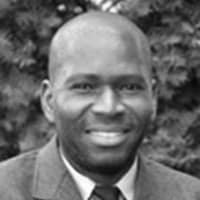
Jonas E. Alexis has degrees in mathematics and philosophy. He studied education at the graduate level. His main interests include U.S. foreign policy, the history of the Israel/Palestine conflict, and the history of ideas. He is the author of the new book Zionism vs. the West: How Talmudic Ideology is Undermining Western Culture. He teaches mathematics in South Korea.
ATTENTION READERS
We See The World From All Sides and Want YOU To Be Fully InformedIn fact, intentional disinformation is a disgraceful scourge in media today. So to assuage any possible errant incorrect information posted herein, we strongly encourage you to seek corroboration from other non-VT sources before forming an educated opinion.
About VT - Policies & Disclosures - Comment Policy



